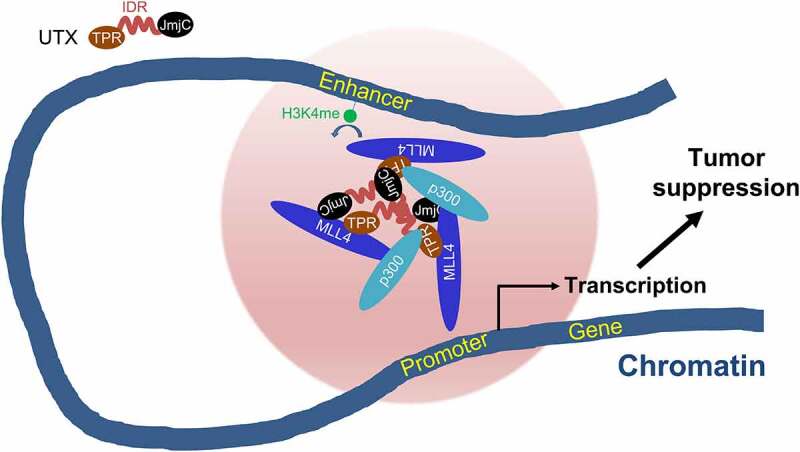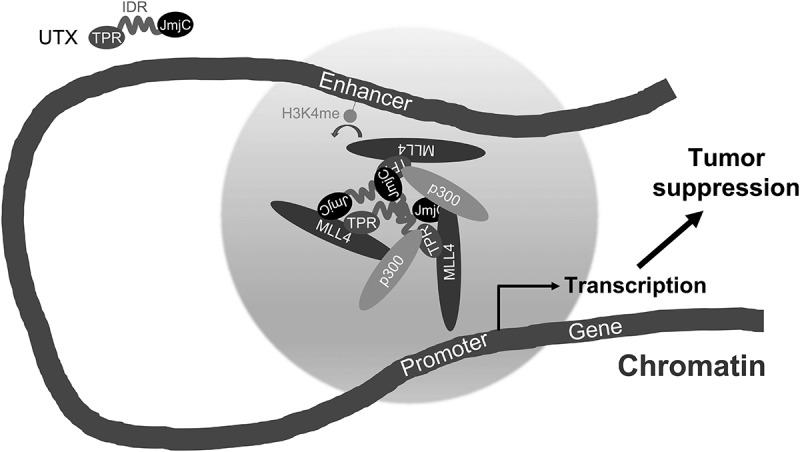表观遗传凝聚体调节染色质活性和肿瘤发生。
IF 1.9
Q3 ONCOLOGY
Molecular and Cellular Oncology
Pub Date : 2021-11-09
eCollection Date: 2021-01-01
DOI:10.1080/23723556.2021.1997040
引用次数: 0
摘要
表观遗传调节剂的改变与癌症广泛相关,但其在癌症调控中的关键分子活动往往不清楚。我们发现赖氨酸去甲基化酶6A (KDM6A,也称为UTX)通过与赖氨酸甲基转移酶2D (KMT2D,也称为MLL4)形成液体状凝聚体并在多个水平上调节染色质活性来抑制癌症。本文章由计算机程序翻译,如有差异,请以英文原文为准。


Epigenetic condensates regulate chromatin activity and tumorigenesis.
Alterations of epigenetic modulators are extensively associated with cancer, but their key molecular activities in cancer regulation are often unclear. We discovered that lysine demethylase 6A (KDM6A, also known as UTX) suppresses cancer by forming liquid-like condensates with lysine methyltransferase 2D (KMT2D, also known as MLL4) and regulating chromatin activity at multiple levels.
求助全文
通过发布文献求助,成功后即可免费获取论文全文。
去求助
来源期刊

Molecular and Cellular Oncology
Biochemistry, Genetics and Molecular Biology-Cancer Research
CiteScore
3.20
自引率
0.00%
发文量
18
期刊介绍:
For a long time, solid neoplasms have been viewed as relatively homogeneous entities composed for the most part of malignant cells. It is now clear that tumors are highly heterogeneous structures that evolve in the context of intimate interactions between cancer cells and endothelial, stromal as well as immune cells. During the past few years, experimental and clinical oncologists have witnessed several conceptual transitions of this type. Molecular and Cellular Oncology (MCO) emerges within this conceptual framework as a high-profile forum for the publication of fundamental, translational and clinical research on cancer. The scope of MCO is broad. Submissions dealing with all aspects of oncogenesis, tumor progression and response to therapy will be welcome, irrespective of whether they focus on solid or hematological neoplasms. MCO has gathered leading scientists with expertise in multiple areas of cancer research and other fields of investigation to constitute a large, interdisciplinary, Editorial Board that will ensure the quality of articles accepted for publication. MCO will publish Original Research Articles, Brief Reports, Reviews, Short Reviews, Commentaries, Author Views (auto-commentaries) and Meeting Reports dealing with all aspects of cancer research.
 求助内容:
求助内容: 应助结果提醒方式:
应助结果提醒方式:


